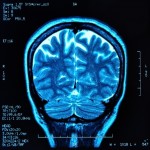The 5 Warning Signs of a Stroke

To begin with an analogy, a stroke is the brain’s equivalent of a heart attack. It’s a crisis of blood flow within the brain. Either a blood vessel becomes blocked causing a part of the brain to suffer from a lack of oxygen and fuel (sugar), known as an ischemic stroke, or a blood vessel ruptures, and bleeds out into the brain, which is called a brain aneurism or hemorrhagic stroke. In the case of an aneurism, the volume of blood that pools within or against the brain places significant pressure on the very sensitive brain tissue and can literally squeeze the life out of it.
A sudden onset “brain attack” can come in different “sizes,” if you will. Size “extra-small” is a TIA, or transient ischemic attack. This is a temporary blockage within a blood vessel which is resolved within few minutes to several hours. The symptoms associated with a TIA fully resolve within 24 hours. While TIAs don’t sound too troubling, one-third of people who have experienced one or more TIAs, go on to have a full-blown stroke experience in their future. Full blown strokes, on the other hand, can be small, medium, large, or downright deadly!
Speed in identifying a stroke and obtaining medical care can influence the “size” of the stroke and can be the difference between life and death. So, please familiarize yourself and your loved ones today with the 5 warning signs below. One day you may become someone’s hero—maybe even your own!
- FACE—ARM—LEG: Numbness, typically on one side of the body, drooping of eye or mouth
- HEAD: Severe headache of rapid onset, mental confusion, or difficulty understanding speech
- EYES: Trouble seeing with one or both eyes
- TONGUE: Difficulty speaking
- BALANCE: Trouble walking, dizziness, loss of balance or coordination
The symptoms of a stroke—both big and small ones—come on suddenly. Your response needs to be just as rapid. If you observe (or experience) one or more of these sudden-onset signs, call 9-1-1 or get the affected person to an emergency department PRONTO!